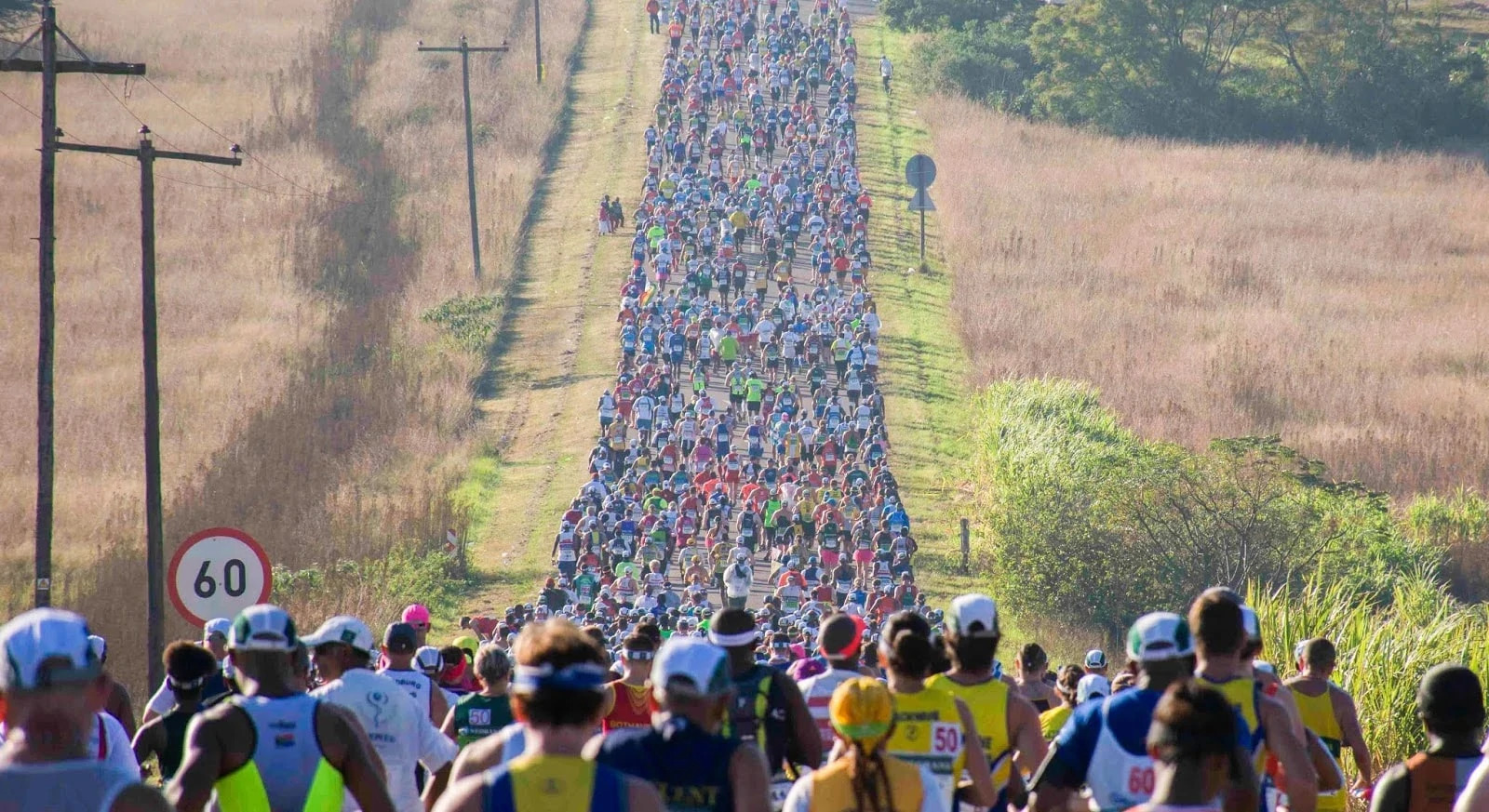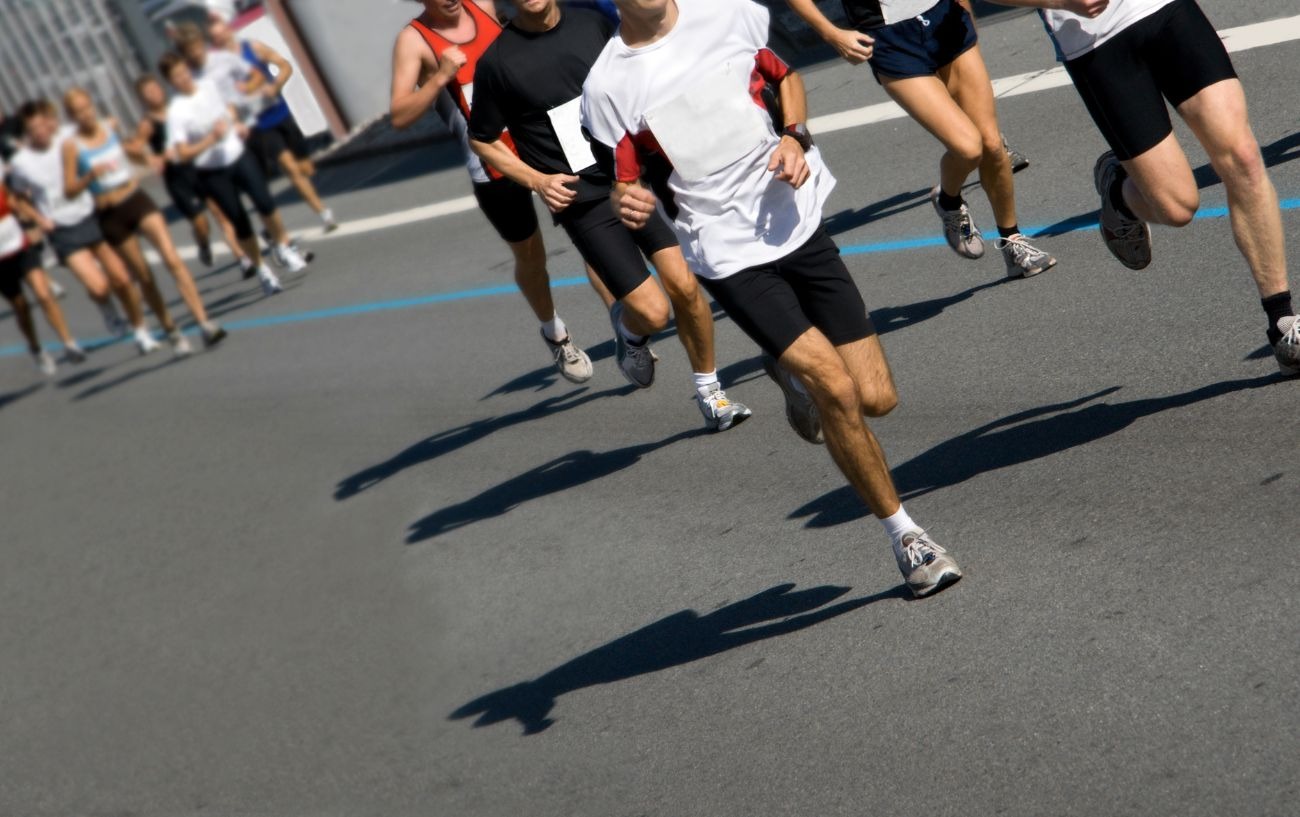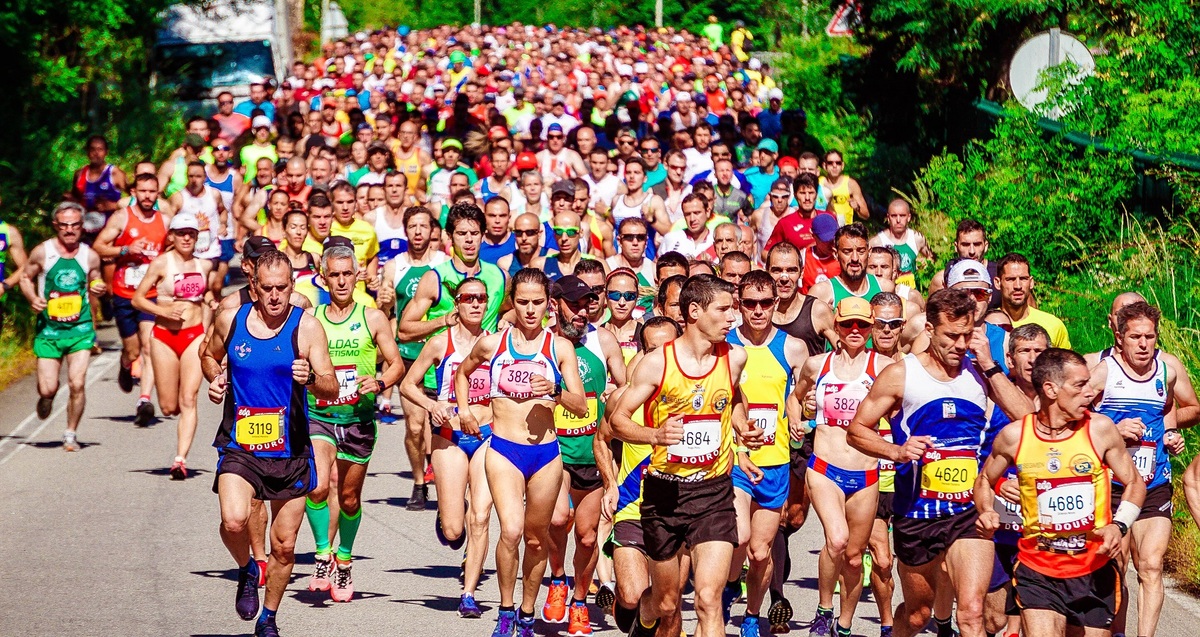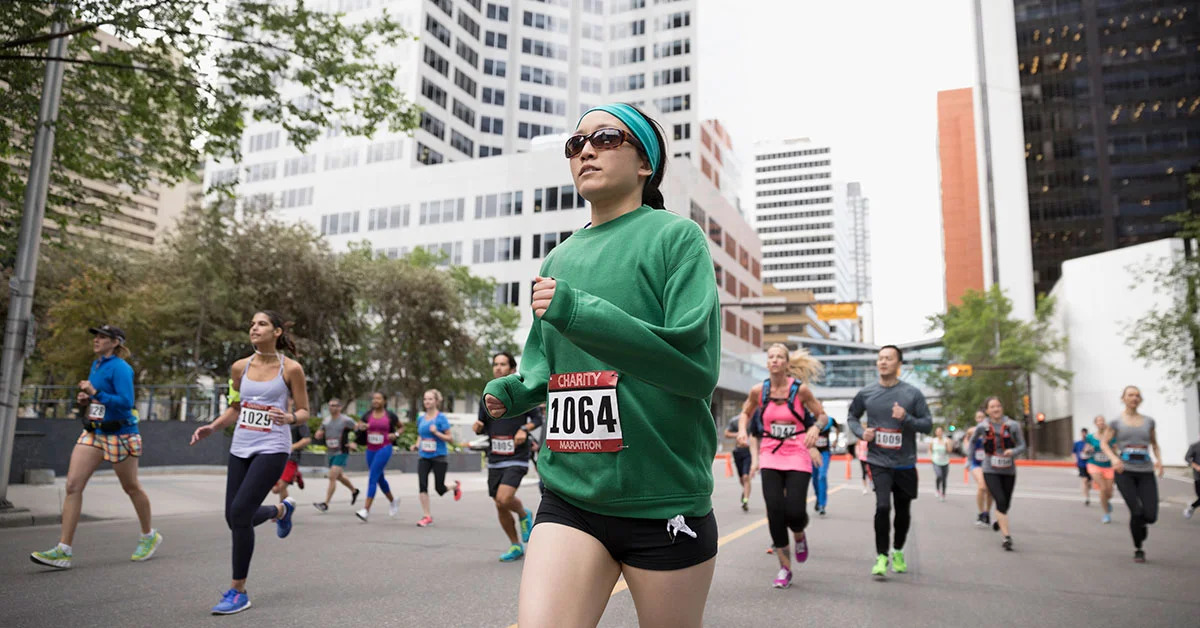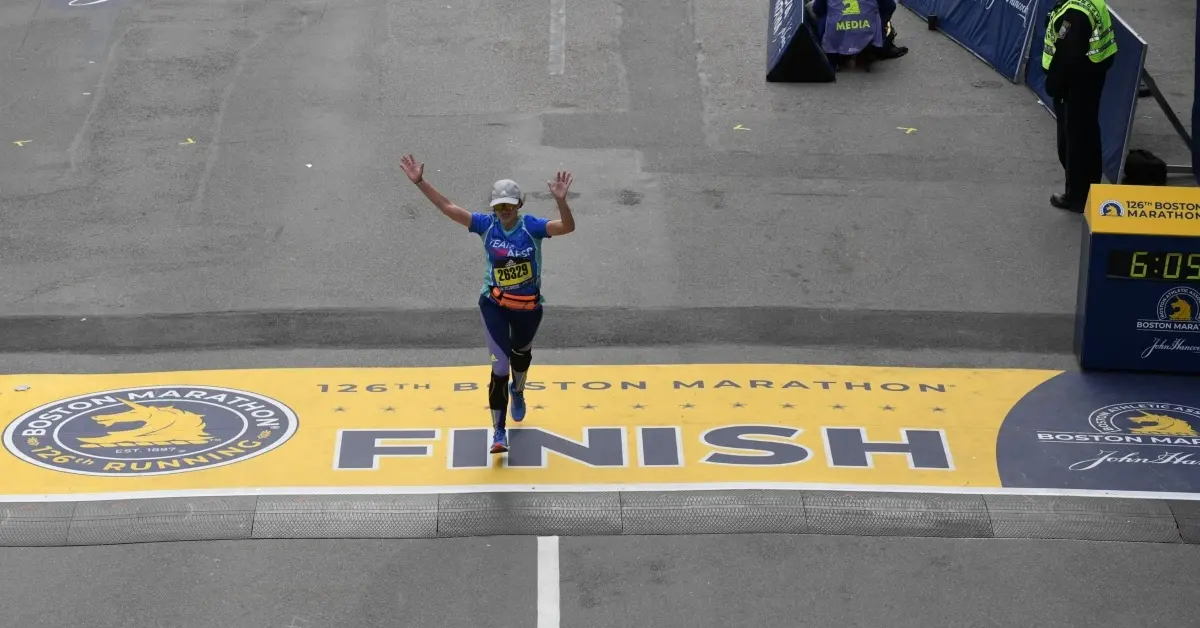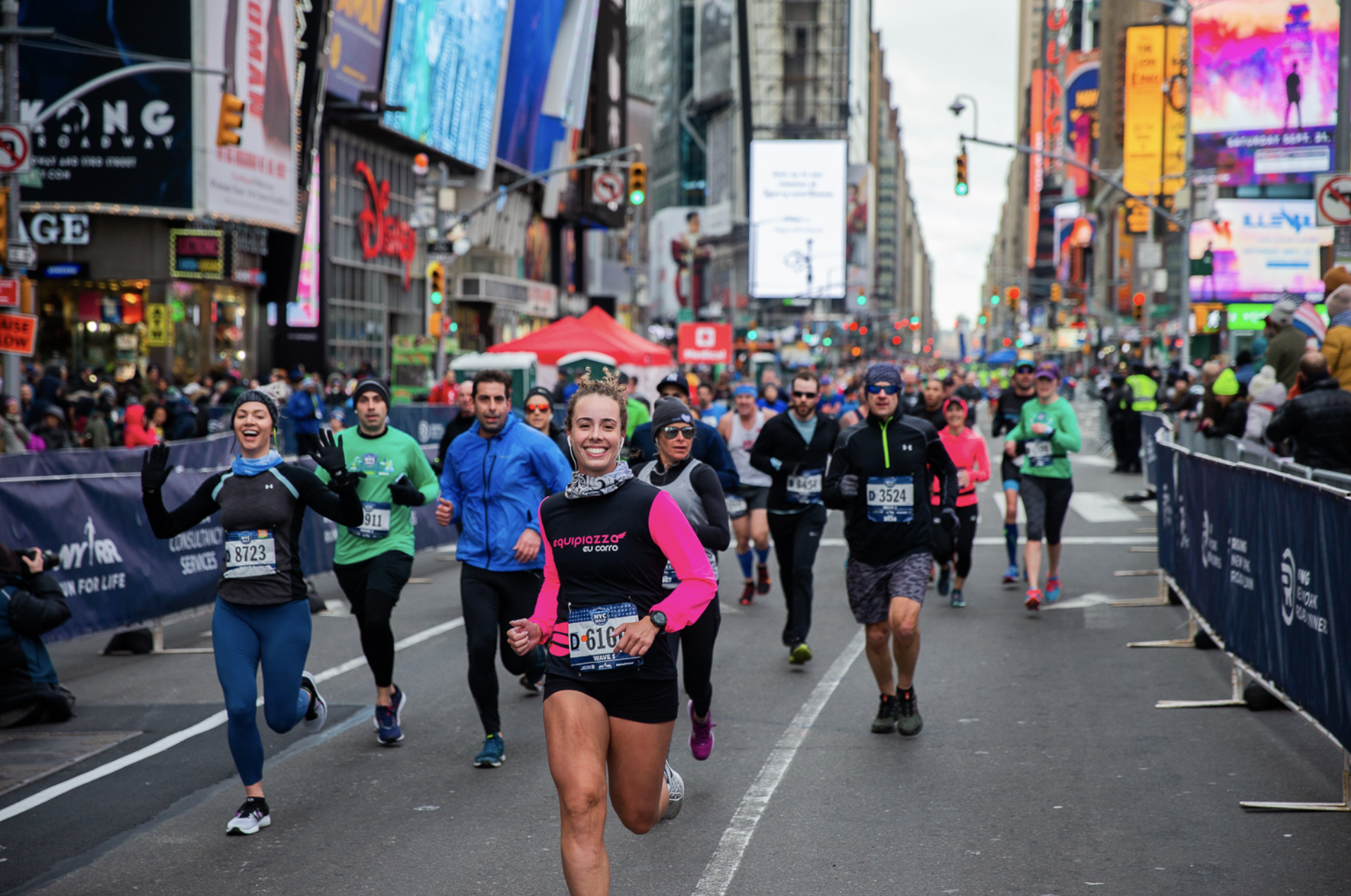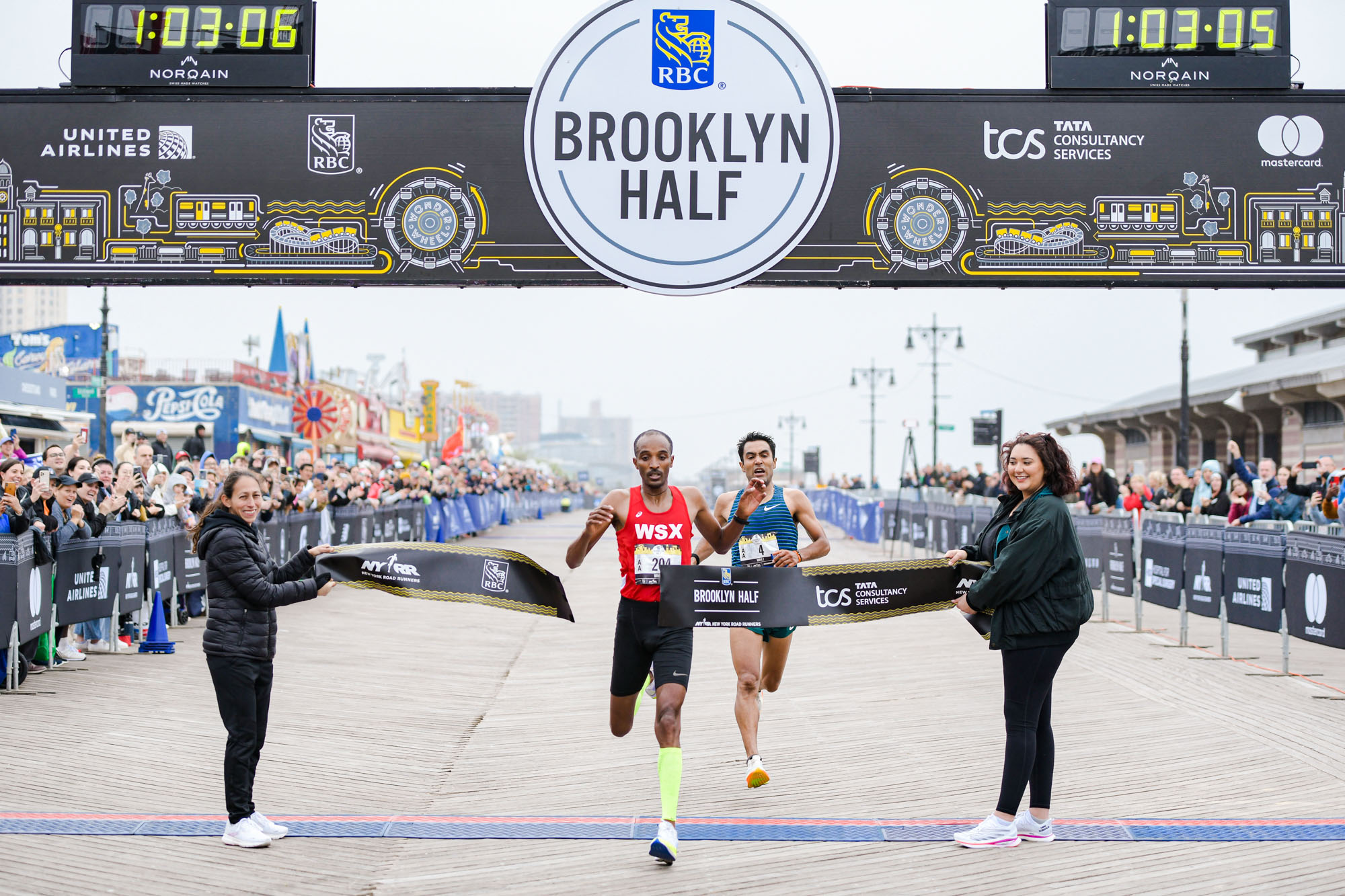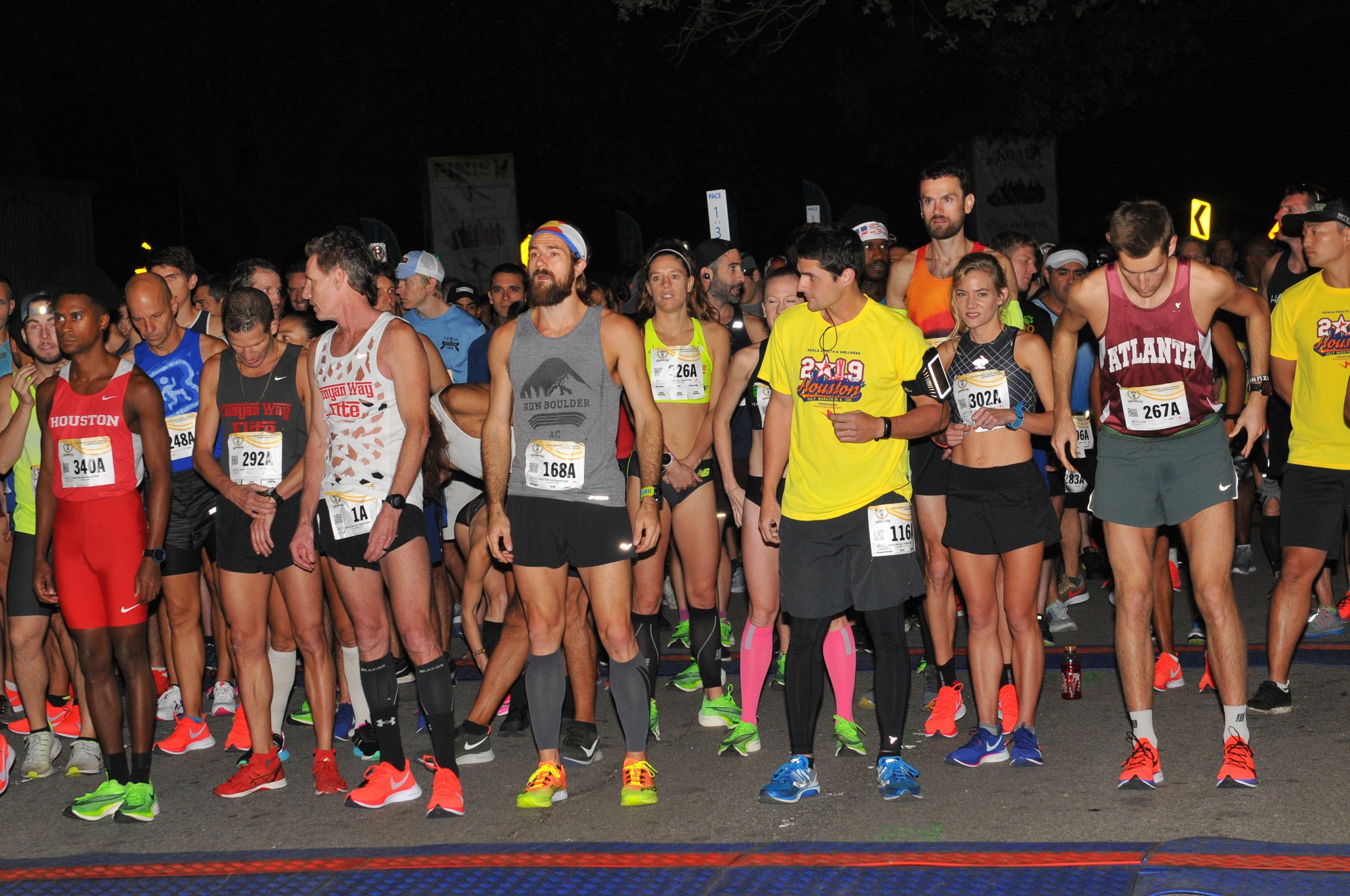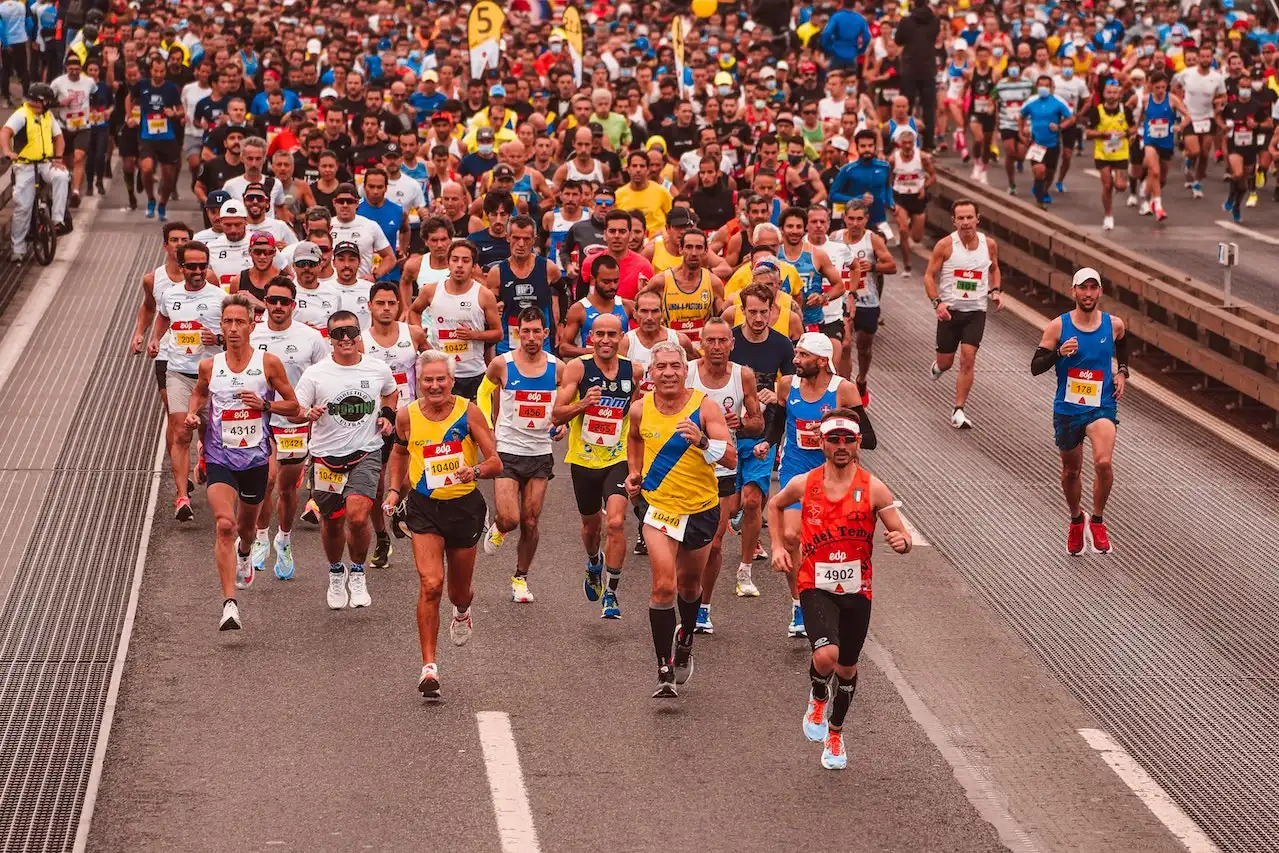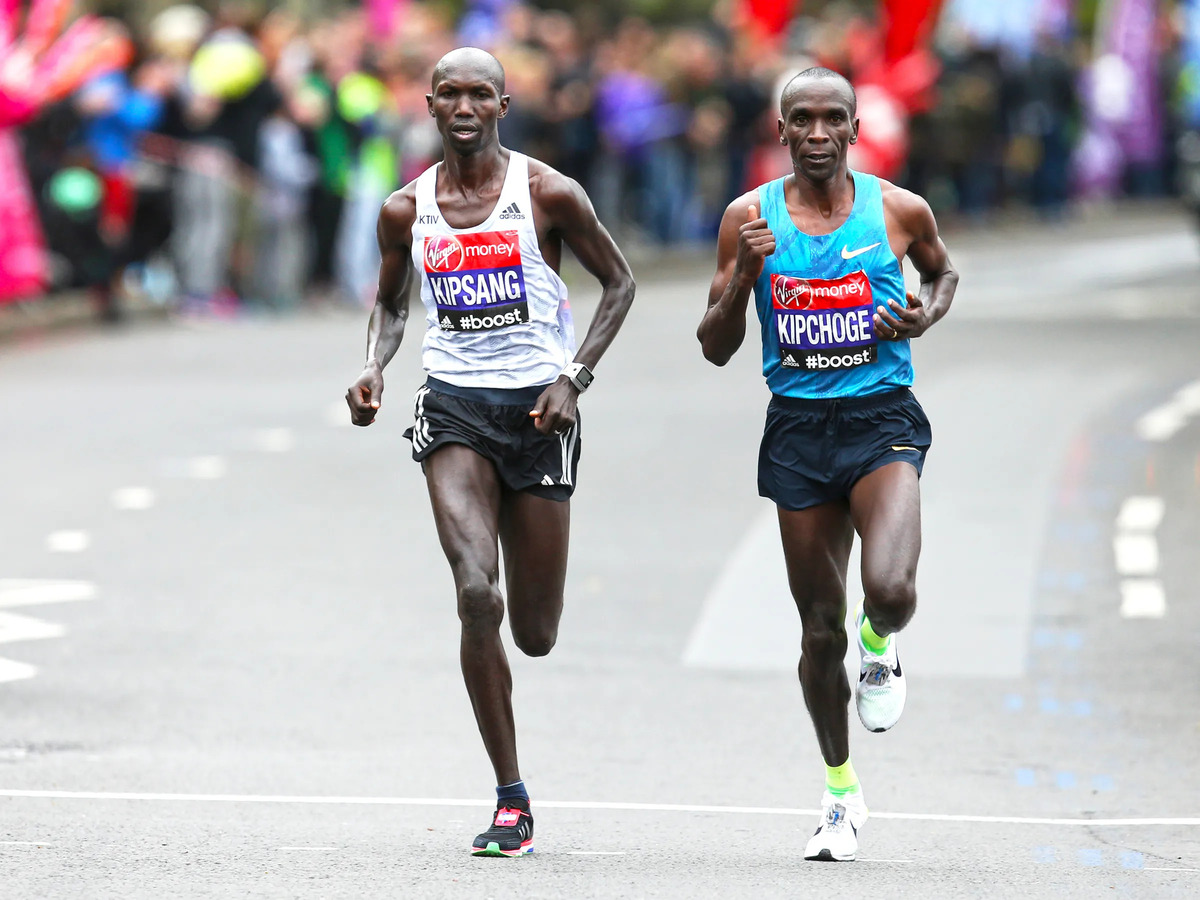

Featured
How Fast Do Marathon Runners Run
Modified: January 22, 2024
Discover the incredible speed of marathon runners in our featured article. Learn how these athletes achieve impressive times and push their limits.
Introduction
Marathons, the ultimate test of endurance and perseverance, have captivated people around the world for centuries. Whether it’s the iconic Boston Marathon, the prestigious New York City Marathon, or the breathtaking Berlin Marathon, these races showcase the remarkable abilities of athletes pushing their limits.
So, how fast do marathon runners run? The answer to this question is not as straightforward as it may seem. The speed at which marathon runners complete the race can vary greatly, depending on several factors. In this article, we will explore the different elements that can impact marathon running speed and take a closer look at the world record holders and average speeds.
To understand marathon running speed, it’s crucial to consider the various factors that influence an athlete’s performance. These factors can be broadly categorized into training and preparation, genetics and physiology, and age and gender differences. By examining each of these aspects, we can gain valuable insights into how marathon runners achieve remarkable speeds.
Training and preparation play a significant role in determining marathon running speed. Endurance, speed, and strength are developed through months of careful training plans and dedicated practice. Training regimens often include a mix of long-distance runs, speed workouts, strength training, and recovery periods. The quality and consistency of training can greatly impact the runner’s ability to maintain a fast pace throughout the entirety of the marathon.
The role of genetics and physiology should also be taken into account when discussing marathon running speed. Some individuals are naturally predisposed to excel in endurance sports, possessing a higher capacity for oxygen uptake and a more efficient running economy. Factors such as muscle fiber composition, body composition, and aerobic capacity can all influence marathon performance. While genetics provide a foundation, proper training and preparation are still essential for optimizing performance.
Age and gender differences should not be overlooked when examining marathon running speed. Studies have shown that age can impact an athlete’s speed and performance, with younger runners tending to have a slight advantage over older individuals. Gender differences also play a role, as men generally have higher average marathon running speeds than women. However, it’s important to note that there can be significant variations within these groups, and exceptional individuals may surpass average expectations.
In the following sections, we will delve deeper into these factors, explore the world record holders in marathon running, discuss average speeds, and offer strategies for individuals looking to improve their marathon running speed. So, let’s lace up our running shoes and dive into the fascinating world of marathon running speed!
Factors Affecting Marathon Running Speed
Several factors contribute to the speed at which marathon runners complete the race. These factors, including training and preparation, genetics and physiology, and age and gender differences, interact and affect each runner’s performance in unique ways.
Training and preparation are vital elements that can significantly impact marathon running speed. Endurance and speed can be improved through consistent and structured training plans. Long-distance runs help build up aerobic capacity, while speed workouts improve an athlete’s ability to maintain a fast pace. Additionally, strength training helps develop the necessary muscle power to sustain a strong stride over the course of the race. Adequate rest and recovery periods are also crucial for preventing injuries and optimizing performance.
Genetics and physiology also play a key role in marathon running speed. Some individuals may have genetic advantages that make them naturally predisposed to excel in endurance sports. Factors such as muscle fiber composition, body composition, and aerobic capacity can contribute to improved running economy and efficiency. However, it’s important to note that while genetics provide a foundation, proper training and preparation are still necessary to maximize performance.
Age and gender differences can influence marathon running speeds. Younger runners generally have a slight edge over older individuals due to factors such as faster muscle recovery and higher aerobic capacity. Gender differences also come into play, as men tend to have higher average marathon running speeds compared to women. However, it’s essential to emphasize that individual variations exist within these groups, and exceptional athletes can surpass average expectations.
Environmental factors can also impact marathon running speed. Weather conditions, such as temperature, humidity, and wind, can affect a runner’s performance. High temperatures can lead to increased sweat rates and dehydration, while strong winds may create resistance and impede speed. Altitude is another factor to consider, as higher elevations can decrease oxygen availability and potentially slow down runners.
Furthermore, psychological factors can influence marathon running speed. Mental toughness, motivation, and the ability to push through fatigue and discomfort can greatly impact an athlete’s performance. Developing mental strategies, such as positive self-talk and visualization techniques, can help athletes maintain focus and stay resilient throughout the race.
Overall, marathon running speed is influenced by a combination of factors. While some aspects, such as genetics and age, are beyond an individual’s control, proper training, preparation, and mental strategies are essential for optimizing performance. Understanding these factors can provide valuable insights for athletes looking to improve their marathon running speed.
Training and Preparation
Training and preparation are crucial components in improving marathon running speed. Diligent and structured training plans, along with adequate preparation, can significantly impact an athlete’s performance on race day.
A well-designed training plan is essential for building the endurance and speed needed to complete a marathon. Long-distance runs are a fundamental part of marathon training as they help develop aerobic capacity and improve the body’s ability to utilize oxygen efficiently. These runs progressively increase in distance over the course of the training program, ensuring that athletes can handle the demands of the marathon distance.
In addition to long-distance runs, incorporating speed workouts into the training plan is essential for improving marathon running speed. These workouts typically involve intervals or tempo runs, where runners alternate between faster-paced segments and slower recovery periods. Speed workouts help improve aerobic and anaerobic fitness, enhance running economy, and increase the lactate threshold, enabling athletes to sustain a faster pace for a longer duration.
Strength training is another critical aspect of marathon preparation. It helps build muscle power and endurance, which are necessary for maintaining proper running form and minimizing fatigue. Exercises such as squats, lunges, and planks can strengthen the muscles in the lower body and core, improving overall running performance. Additionally, cross-training activities like cycling or swimming can provide variety while still targeting key muscle groups.
Rest and recovery periods are just as important as training. Adequate rest allows the body to adapt and recover from the stress of training, reducing the risk of overuse injuries. Rest days should be incorporated into the training plan to ensure proper recovery. Active recovery activities like light jogging or yoga can also aid in muscle repair and maintenance.
Proper nutrition plays a vital role in marathon preparation. Fueling the body with nutrient-dense foods, including carbohydrates, proteins, and healthy fats, helps replenish energy stores, repair muscles, and support overall performance. Hydration is also crucial, and athletes should regularly consume fluids before, during, and after long runs to maintain proper hydration levels.
Lastly, mental preparation is essential for marathon runners. Developing a positive and determined mindset can help athletes overcome challenges and push through fatigue during the race. Visualization techniques, goal setting, and positive self-talk are effective mental strategies that can enhance performance and increase confidence.
In summary, effective training and preparation are key to improving marathon running speed. A well-structured training plan that includes long-distance runs, speed workouts, and strength training is essential for building endurance, speed, and muscle power. Adequate rest, proper nutrition, and mental preparation are also crucial components for maximizing performance on race day. By dedicating time and effort to training and preparing the body and mind, marathon runners can achieve their goals and improve their marathon running speed.
Genetics and Physiology
The impact of genetics and physiology on marathon running speed cannot be overlooked. While training and preparation are essential, individuals with certain genetic traits and physiological characteristics may have inherent advantages when it comes to marathon performance.
Genetics plays a role in determining an individual’s potential for endurance sports. Some people possess genetic variations that make them naturally predisposed to excel in activities requiring sustained physical effort, such as marathon running. These genetic factors can include variations in genes related to oxygen-carrying capacity, energy metabolism, muscle fiber composition, and muscle contraction.
One important factor to consider is a person’s aerobic capacity, often measured by the maximum amount of oxygen they can utilize during exercise (VO2 max). Higher VO2 max values are often associated with better endurance performance as it indicates a person’s ability to deliver and utilize oxygen efficiently. Genetic factors, such as the presence of certain gene variants, can influence an individual’s innate aerobic capacity.
Muscle fiber composition is another aspect influenced by genetics. Some individuals have a higher percentage of slow-twitch muscle fibers, which are more suited for endurance activities, while others may have a higher percentage of fast-twitch muscle fibers, which are associated with power and speed. The ratio of these two fiber types can impact an individual’s running economy and ability to sustain a faster pace during a marathon.
Body composition is another factor affected by genetics. Lean body mass, particularly in the lower body, is beneficial for running performance, as it reduces the energy required to propel the body forward. Genetic factors influence an individual’s natural body composition and distribution of fat and muscle.
Furthermore, physiological factors such as running economy and lactate threshold significantly impact marathon running speed. Running economy refers to the efficiency with which an individual uses oxygen to maintain a specific running pace. Those with a more efficient running economy require less energy to maintain the same speed, enabling them to sustain faster paces for longer periods. Lactate threshold is the exercise intensity at which the body starts to produce more lactate, leading to fatigue. Individuals with a higher lactate threshold can maintain a faster pace before the onset of fatigue.
While genetics provide a foundation, it’s important to note that training and preparation are still necessary to optimize marathon performance. Even individuals with favorable genetic traits need to engage in proper training to develop their abilities fully. Additionally, genetic advantages do not guarantee success, as proper race tactics, mental fortitude, and other external factors can also influence performance.
In summary, genetics and physiology play a significant role in marathon running speed. Factors such as aerobic capacity, muscle fiber composition, body composition, running economy, and lactate threshold can contribute to an individual’s innate ability to excel in endurance sports. However, it’s important to recognize that training, preparation, and other external factors also contribute to overall marathon performance. Understanding one’s genetic and physiological traits can help athletes optimize their training and adapt their strategies to maximize their marathon running speed.
Age and Gender Differences
Age and gender can impact marathon running speed, with variations observed in performance between different age groups and between men and women. While these factors may influence the average speeds of marathon runners, it is important to recognize that there are exceptional athletes who defy general trends.
Age can affect marathon running speed due to physiological changes that occur as individuals age. Younger runners often have faster recovery rates, greater muscle strength, and higher aerobic capacity compared to older runners. These factors contribute to their ability to sustain a faster pace throughout the race. However, it is worth noting that individuals of any age can still achieve remarkable speeds through proper training, dedication, and mindset.
Gender differences also play a role in marathon running speed. On average, men have faster marathon times compared to women. This discrepancy can be attributed to physiological factors such as differences in muscle mass, bone density, and hormone levels. Men tend to have a higher proportion of lean muscle mass, which contributes to their ability to generate power and endurance. Additionally, hormone levels, such as testosterone, can affect muscle development and aerobic capacity.
However, it is important to emphasize that there is significant variation within both age and gender groups. Exceptional female athletes have proven their ability to achieve extraordinary speeds and surpass average expectations. Over the years, female marathon runners have continually pushed boundaries and challenged stereotypes, inspiring generations of athletes.
Training, experience, and determination are key factors that can level the playing field and help individuals of all ages and genders reach their full potential in marathon running. Proper training plans, strategic pacing, mental strength, and race-day tactics are all crucial elements for any runner looking to improve their speed and performance.
Furthermore, age and gender differences should not discourage individuals from participating in marathons or striving for their personal best. Marathons are inclusive events that celebrate the unique achievements of all participants, regardless of age or gender. Every finisher deserves recognition and applause for their efforts and dedication.
In summary, age and gender can influence marathon running speed, with younger runners and men generally exhibiting faster average times. However, individual variations exist within these groups, and exceptional athletes can outperform average expectations through hard work, proper training, and a determined mindset. Participation in marathons should be seen as a celebration of personal achievements and a testament to the human spirit’s resilience and determination.
World Record Holders: The Fastest Marathon Runners
Breaking records and pushing the boundaries of human performance, world record holders are the epitome of marathon running speed. These exceptional athletes have achieved remarkable feats, showcasing their extraordinary abilities and inspiring aspiring runners around the globe.
As of now, the men’s world record for the fastest marathon time is held by Eliud Kipchoge of Kenya, who completed the 26.2-mile race in a mind-boggling time of 2 hours, 1 minute, and 39 seconds. This incredible achievement was accomplished during the Berlin Marathon in 2018. Kipchoge’s exceptional pacing, efficiency, and mental fortitude allowed him to surpass previous records and redefine the limits of human endurance.
On the women’s side, the world record is held by Brigid Kosgei of Kenya, who set a blistering pace of 2 hours, 14 minutes, and 4 seconds at the Chicago Marathon in 2019. Kosgei’s performance shattered the previous record held by Paula Radcliffe, which had stood for 16 years. Her remarkable speed and strength have solidified her place as one of the greatest marathon runners in history.
These incredible performances are a testament to the dedication, hard work, and talent of these world-class athletes. They train meticulously, utilizing cutting-edge training methods, optimizing nutrition, and employing mental strategies to cope with the grueling demands of the marathon distance.
One key factor contributing to these record-breaking performances is the advancement in technology and innovation in marathon racing. Elite runners have access to state-of-the-art shoes, specifically designed to enhance energy return and improve running economy. This, along with advancements in training techniques and scientific understanding of human performance, has contributed to the rise in marathon running speeds.
It is important to note that while world record holders inspire awe and admiration, they represent a select few among the millions of marathon runners worldwide. Average runners may not reach the same speeds or achieve comparable records, but every marathon finish is a personal accomplishment worthy of celebration.
World record holders in marathon running continue to push the boundaries of what was once considered impossible. These remarkable athletes inspire runners of all levels to dream big, set ambitious goals, and constantly strive for improvement. Their remarkable performances serve as a reminder that with dedication, perseverance, and a belief in one’s abilities, extraordinary things can be accomplished in the world of marathon running.
Average Marathon Running Speeds
While world record holders showcase the absolute pinnacle of marathon running speed, it is essential to understand the average speeds at which most marathon runners complete the race. These average speeds provide a realistic benchmark for runners of varying abilities and experience.
The average marathon running speed can vary significantly depending on factors such as age, gender, training level, and personal fitness. On average, male marathon runners tend to have faster finishing times than female runners. According to data from running events around the world, the average finishing time for men is approximately 4 hours and 20 minutes, while for women, it is around 4 hours and 45 minutes.
Age also plays a role in marathon running speed. Generally, younger runners tend to have faster average speeds compared to older individuals. However, it’s important to note that this is a general trend, and there are remarkable older runners who surpass average expectations. Age group categories in marathons allow for fair comparisons among runners of similar age, highlighting the achievements and efforts of individuals within specific age brackets.
For recreational and first-time marathon runners, average speeds may differ. It is not uncommon for novice runners to complete their first marathon within the range of 4 to 6 hours, as they are still building their endurance and gaining experience in tackling the challenging distance.
Factors such as course elevation, weather conditions, and personal goals can also impact average marathon running speeds. Hilly courses and adverse weather can slow down runners, while flat and fast courses may result in slightly faster times. Additionally, personal goals and strategies can influence the pace a runner maintains during the race, ultimately affecting their average finishing time.
It’s important to remember that marathon running is a personal journey, and every finisher should be proud of their accomplishment, regardless of their finishing time. The marathon distance is a tremendous challenge, requiring months of training, determination, and mental fortitude. Each individual is racing against their own limits and striving to reach their personal best.
In summary, average marathon running speeds vary depending on factors such as gender, age, training level, and personal goals. Men tend to have faster average times than women, and younger runners generally exhibit faster speeds compared to older individuals. Additionally, personal factors and external conditions can influence average finishing times. Regardless of the average speed, all marathon finishers should be celebrated for their dedication, hard work, and perseverance in tackling the demanding 26.2-mile distance.
Strategies for Improving Marathon Running Speed
Improving marathon running speed requires a combination of proper training, strategic planning, and mental fortitude. Here are some effective strategies that can help athletes enhance their performance and achieve faster marathon times.
1. Follow a well-structured training plan: A comprehensive training plan is essential for building endurance, speed, and strength. It should include a mix of long-distance runs, speed workouts, tempo runs, and strength training. Gradually increasing mileage and intensity over time will help prepare the body for the demands of a marathon.
2. Incorporate speed workouts: Interval training, tempo runs, and fartlek runs are effective for improving speed and aerobic capacity. These workouts involve running at a faster pace for specific intervals, challenging the body to adapt and become more efficient at sustaining a faster pace.
3. Focus on strength training: Incorporate strength exercises to enhance muscle power and endurance. Targeting key muscle groups, such as the core, legs, and glutes, helps maintain proper running form and minimizes fatigue. Exercises like squats, lunges, and plyometric drills can be beneficial.
4. Practice proper pacing: Pace management is crucial for maintaining a steady and sustainable speed throughout the marathon. Develop a race strategy that includes starting conservatively and gradually increasing the pace. Avoid going out too fast in the early stages, as this can lead to burnout later in the race.
5. Implement effective fueling and hydration: Adequate nutrition and hydration are vital for optimal performance. Develop a nutrition plan that includes consuming proper carbohydrates, proteins, and fats before, during, and after the race. Hydrate regularly during training runs and practice your fueling strategy to avoid gastrointestinal issues on race day.
6. Embrace recovery and rest: Allow ample time for rest and recovery. Incorporate rest days into your training plan to avoid overtraining and reduce the risk of injuries. Active recovery activities like gentle stretching, foam rolling, and cross-training can also aid in muscle recovery.
7. Develop mental strategies: Train your mind as well as your body. Mental toughness is critical for pushing through fatigue and challenges during a marathon. Develop positive self-talk, visualization techniques, and mental cues to stay focused and motivated.
8. Seek professional guidance: For those looking to improve their marathon running speed, consider seeking guidance from a coach or trainer who has experience working with endurance athletes. They can provide personalized training plans, offer guidance on technique, and provide valuable insights to help you reach your goals.
Remember that improving marathon running speed takes time and consistency. Be patient with yourself and celebrate small accomplishments along the way. With dedication, perseverance, and a willingness to push your limits, you can make progress and achieve faster marathon times.
Conclusion
Marathon running speed is influenced by various factors, including training and preparation, genetics and physiology, age and gender differences, and individual strategies. While world record holders inspire awe and admiration with their remarkable speeds, it’s important to remember that marathon running is a personal journey, and every finisher should be proud of their achievements, regardless of their finishing time.
Training and preparation are essential for improving marathon running speed. Through consistent and structured training plans, athletes can build endurance, speed, and strength. Incorporating speed workouts, strength training, and proper nutrition are key elements in optimizing performance.
Genetics and physiology also play a role in marathon running speed. Some individuals may possess genetic advantages that contribute to their running ability, such as high aerobic capacity and favorable muscle fiber composition. However, training and preparation are still necessary to maximize performance.
Age and gender differences can impact marathon running speeds, with younger runners and men generally achieving faster average times. However, it’s important to recognize that exceptional athletes exist within every age and gender group, defying average expectations and achieving remarkable speeds.
Strategies for improving marathon running speed include following a well-structured training plan, incorporating speed workouts, focusing on strength training, practicing proper pacing, implementing effective fueling and hydration strategies, embracing recovery and rest, developing mental strategies, and seeking professional guidance.
In conclusion, marathon running speed is a culmination of factors such as training, genetics, age, and gender. While world record holders demonstrate the pinnacle of speed, every individual marathon finisher deserves recognition and celebration. Whether you’re striving for a personal best or simply aiming to complete your first marathon, remember that the journey itself is an accomplishment. Embrace the challenges, stay committed to your training, and enjoy the exhilarating experience of marathon running.
